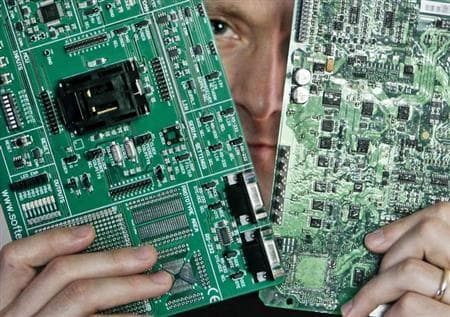Software Hackers Plan To Release Car Hacking Tools At Def Con Hacking Conference
Before you panic and raise an alarm regarding this event, we can assure you there are no ill intensions involved in this process. Software hacking experts Charlie Miller and Chris Valasek who are well known for finding bugs in Microsoft and Apple software products have been working on a US government funded project on finding out vulnerabilities associated with critical systems in modern cars. The duo will release the detailed blueprints of techniques that they used to hack into popular cars like Toyota Prius and Ford Escape at the Def Con Hacking Conference scheduled to be held in Las Vegas this week. Along with the 100 page white paper they shall also be releasing the software they built to hack into cars with the hope that other hackers will use it to find even more vulnerabilities.

During the course of this research, the software hackers managed to forcefully deploy the brakes on the Toyota Prius while it was going at 80 miles an hour. Not only that they also managed to make it’s steering wheel jerk and also accelerate the car. On a Ford Escape, they managed to disable the brakes when the car was at slower speeds. But of course, these hacks were carried out with them sitting inside the cars and their laptops were connected to the vehicle’s computer. Toyota and Ford have gone through this report and are working on fixing these problems. Ford has assured its customers that there is no direct public risk because there attacks weren’t carried out remotely.
But remote attacks are actually possible, #-Link-Snipped-# has already been offered to us in 2011 when some academics managed to infect a specific car by using its Wi-Fi and Bluetooth systems. Their work has been a closely guarded secret but since the number of cars using these communication systems has become a common sight these days and with self driving cars on the way, we sure hope that these ‘white hat’ hackers manage to find out vulnerabilities before the malicious ones do.
News and Image Courtesy: #-Link-Snipped-#

During the course of this research, the software hackers managed to forcefully deploy the brakes on the Toyota Prius while it was going at 80 miles an hour. Not only that they also managed to make it’s steering wheel jerk and also accelerate the car. On a Ford Escape, they managed to disable the brakes when the car was at slower speeds. But of course, these hacks were carried out with them sitting inside the cars and their laptops were connected to the vehicle’s computer. Toyota and Ford have gone through this report and are working on fixing these problems. Ford has assured its customers that there is no direct public risk because there attacks weren’t carried out remotely.
But remote attacks are actually possible, #-Link-Snipped-# has already been offered to us in 2011 when some academics managed to infect a specific car by using its Wi-Fi and Bluetooth systems. Their work has been a closely guarded secret but since the number of cars using these communication systems has become a common sight these days and with self driving cars on the way, we sure hope that these ‘white hat’ hackers manage to find out vulnerabilities before the malicious ones do.
News and Image Courtesy: #-Link-Snipped-#
0
